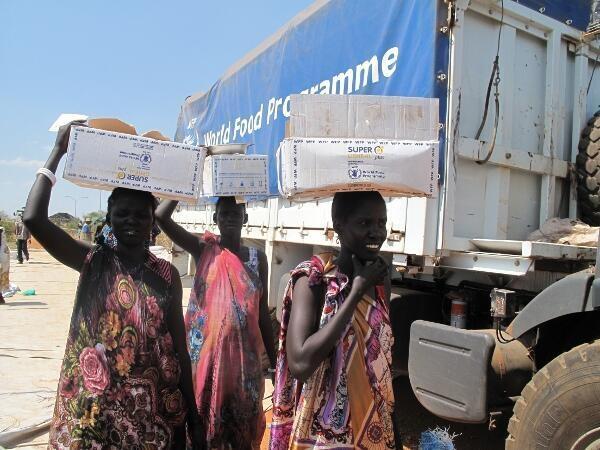The United Nations World Food Programme (WFP) is facing increasing challenges in its efforts to combat the severe food crisis in Sudan, with ongoing violence, bureaucratic delays, and the looming rainy season threatening to cut off millions of people from essential food assistance.
With the conflict now in its second year, Sudan is experiencing one of the worst hunger crises in the world, and WFP has called for urgent action to ensure that food assistance reaches the most vulnerable before the roads become impassable.
As the conflict continues, nearly 24.6 million Sudanese people – almost half the population are struggling with acute hunger. Among them, 638,000 individuals are facing catastrophic hunger (IPC5), marking the highest number globally.
Famine conditions have been confirmed in 10 locations, including eight areas in North Darfur and two in the Western Nuba Mountains, where food insecurity has reached alarming levels.
"The need for food assistance is critical, and we must act fast," said a WFP spokesperson.
"We are working hard to preposition food supplies, but access is a major issue. Without timely intervention, millions of people will be cut off from life-saving aid as roads become impassable."
WFP has been providing food aid to over three million people each month, and its goal is to reach seven million by mid-year. Despite these efforts, the road to recovery remains long and uncertain.
Over 30,000 metric tons of food assistance have been delivered into Darfur through the reopened Adre border crossing, but many families are still facing emergency levels of hunger.
Some regions, such as Central and West Darfur, have been able to reduce the risk of famine through WFP’s intervention, providing regular food or cash assistance to nearly one million people since June 2024.
However, with the rainy season approaching, WFP fears that critical areas will soon become inaccessible. Ongoing fighting in and around El Fasher, North Darfur’s largest city, has already forced WFP to suspend operations in Zamzam IDP Camp.
In addition to the violence, bureaucratic delays, extortion, and denial of movement for humanitarian staff have made it even more difficult for WFP to deliver aid in a timely manner.
As the situation in Sudan deteriorates, the impact is also being felt in neighboring countries.
Over one million Sudanese refugees have fled to South Sudan, where WFP is providing food and nutrition support at border areas.
Chad is also hosting nearly one million refugees and returnees from Sudan, and WFP continues to assist both refugees and host communities in these regions.
In light of the increasing humanitarian needs, WFP is calling for $650 million (Sh 85.8 billion) in funding to maintain its operations in Sudan for the next six months.
The organization has stressed the importance of flexible funding to respond quickly to the rapidly changing situation on the ground.

